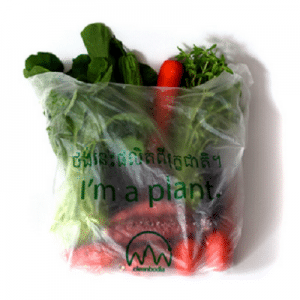
Agriculture
January 11, 2024
Cleanbodia Bio Bags
Read SolutionImplemented by
Cleanbodia

Updated on August 20, 2024
·Created on August 27, 2015
The PICS bag is a cost-effective, triple-layer hermetic storage bag which permits farmers to store their grains without the use of insecticide thus providing them healthy, clean food that can be stored for longer.
The Purdue Improved Cowpea Storage (PICS) bags are high density, hermetic polyethylene bags, with ultra-thick walls of 80 microns, intended to maintain the viability of cowpeas for planting, minimize mold growth and accumulation of mycotoxins and control storage insect pests, thereby enabling farmers to store their grains without the use of insecticides.
The PICS projects (PICS2 and PICS3) carried out research to explore the usefulness and value of PICS bags of crops including maize, sorghum, wheat, rice, peanut, common bean, hibiscus seed, mung bean, pigeon pea and bambara groundnut.
Target SDGs
SDG 2: Zero Hunger
SDG 1: No Poverty
Market Suggested Retail Price
$4.00
Target Users (Target Impact Group)
Household, Community, Small and Medium-sized Enterprises
Distributors / Implementing Organizations
Purdue University in partnership with manufacturers, private entrepreneurs and vendors.
Competitive Landscape
Direct competitors include ZeroFly Storage Bag.
Regions
Central Africa, East Africa, West Africa
Countries
Afghanistan, Burkina Faso, Cameroon, Chad, Kenya, Mali, Nigeria, Rwanda, Senegal
Manufacturing/Building Method
Mass produced. PICS project staff members currently work with several African-based plastic manufacturers to produce PICS triple-layer bags. Interview with representative.
Intellectural Property Type
Trademark
User Provision Model
African entrepreneurs and rural communities are starting new businesses focused on purchasing the PICS bags from manufacturers and selling them to farmers through their retail networks. Farmers can buy it from manufacturers and local businesses, approved vendors in 50kg and 100kg capacity sizes at a cost between $2 and $4 USD. Available at market price, depending on the region.
Distributions to Date Status
In 5 years, more than 2.4 million PICS bags were sold in West and Central Africa.
Materials of construction
High density polyethylene PICS bags, with ultra-thick walls of 80 micron
Grain storage duration
~3 months
Holding Temperature (°C)
Unknown.
Protection from insect entry
Yes
Storage capacity (kg)
50-100
Temperature control
N/A
Design Specifications
Technical Support
Available in the form of an instruction manual
Replacement Components
N/A.
Lifecycle
PICS bags are used and reused to store cowpeas up to 4 consecutive years. Interview with representative
Manufacturer Specified Performance Parameters
Performance targets: Interview with representative
Vetted Performance Status
Physical activity and reproduction of bruchids in PICS bags ceases due to hypoxia.
Safety
Hermetic sealing is compromised by bag wall ruptures. Once PICS bags are no longer fit to store cowpea, they can be used for other purposes.
Complementary Technical Systems
Unknown.
Academic Research and References
Available [online] at: http://www.entm.purdue.edu/PICS3/journal_articles.php
Vales, M.I., Ranga Rao, G.V., Sudini, H., Patil, S.B., & Murdock, L.L. (2014) Effective and economic storage of pigeonpea seed in triple layer plastic bags. Journal of Stored Products Research, 58, 29-38
Murdock, L.L., & Baoua, I.B. (2014) On Purdue Improved Cowpea Storage (PICS) Technology: Background, Mode of Action, Future Prospects. Journal of Stored Products Research, 58, 3-11
Baoua, I., Amadou, L., Ousmane, B., Baributsa, D., & Murdock, L.L. (2014) PICS bags for postharvest storage of maize in West Africa. Journal of Stored Products Research, 58, 20-28
Baoua, I., Amadou, L., Baributsa, D., & Murdock, L.L. (2014) Triple bag hermetic technology for post-harvest preservation of Bambara groundnut (Vigna subterranea (L.) Verdc.) Journal of Stored Products Research, 58, 48-52
Affognon, H., Njoroge, A.W., Mutungi, C.M., Manono, J., Lamuka, P.O. & Murdock, L.L. (2014). Storage of mung bean (Vigna radiata [L.] Wilczek) and pigeonpea grains (Cajanus cajan [L.] Millsp) in hermetic triple-layer bags stops losses caused by Callosobruchus maculatus (F.) (Coleoptera: Bruchidae). Journal of Stored Products Research, 58, 39-47
Baoua, I. B., Amadou, L., Lowenberg-DeBoer, J. D., & Murdock, L. L. (2013) Side by side comparison of GrainPro and PICS bags for postharvest preservation of cowpea grain in Niger. Journal of Stored Products Research 54, 13-16
Baoua, I. B., Amadou, L., & Murdock, L.L. (2013) Triple bagging for cowpea storage in rural Niger: Questions farmers ask. Journal of Stored Products Research 52, 86-92
Murdock, L.L., Sithole-Niang, I., and Higgins, T.J.V. (2013) Transforming the cowpea, an African orphan staple crop grown predominantly by women, pp. 221-232 In Successful Agricultural Innovation in Emerging Economies: New Genetic Technologies for Global Food Production (edited by D.J. Bennett and R.C. Jennings), Cambridge University Press
Baoua, I. B., Amadou, L., Margam, V., & Murdock, L.L. (2012) Comparative evaluation of six storage methods for postharvest preservation of cowpea grain. Journal of Stored Products Research 49, 171-175
Baoua, I. B., Margam, V., Amadou, L., & Murdock, L.L. (2012) Performance of triple bagging hermetic technology for postharvest storage of cowpea grain in Niger. Journal of Stored Products Research 51, 81-85
Murdock, L.L., Margam, V., Baoua, I., Balfe, S., & Shade, R.E. (2012) Death by desiccation: effects of hermetic storage on cowpea bruchids. Journal of Stored Products Research 49, 166-170
Hell, K., Edoh Ognakossan, K., Lamboni, Y., (2014) PICS hermetic storage bags ineffective in controlling infestations of Prostephanus truncates and Dinoderus spp. In traditional cassava chips. Journal of Stored Products Research, 58, 53-58
Williams, S. B., Baributsa, D., Woloshuk, C. (2014). Assessing Purdue Improved Crop Storage (PICS) bags to mitigate fungal growth and aflatoxin contamination. Journal of Stored Products Research.
Jones, M., Alexander, C., Lowenberg-DeBoer, J., (2014) A simple methodology for measuring profitability of on-farm storage pest management in developing countries. Journal of Stored Products Research, 58, 67-76
Jones, M., Alexander, C., Ricker-Gilbert, J., Olynk Widmar, N.J. and Lowenberg-DeBoer, J., 2012, “Do Insect and Mold Damage Affect Maize Prices in Africa? Experimental Evidence from Malawi“, revision submitted to American journal of Agricultural Economics.
Ricker-Gilbert, Jacob & Jones, Michael, 2012. “Does Access to Storage Protectant Increase Smallholder Adoption of Improved Maize Seed? Insights from Malawi,” 2012 Annual Meeting, August 12-14, 2012, Seattle, Washington 124658, Agricultural and Applied Economics Association.
Compliance with regulations

Agriculture
January 11, 2024
Implemented by
Cleanbodia
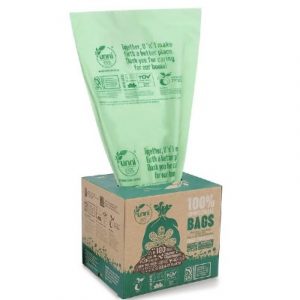
Agriculture
January 15, 2024
Implemented by
UNNI
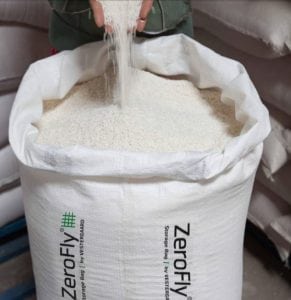
Agriculture
February 5, 2024
Implemented by
Vestergaard
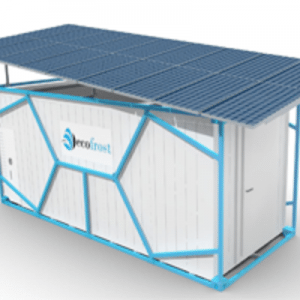
Agriculture
December 26, 2023
Implemented by
Ecofrost Technologies, a subsidiary of Ecozen.
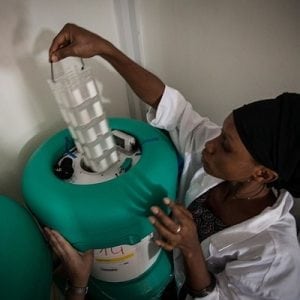
Agriculture
February 20, 2024
Implemented by
Intellectual Ventures Lab

Agriculture
March 7, 2024
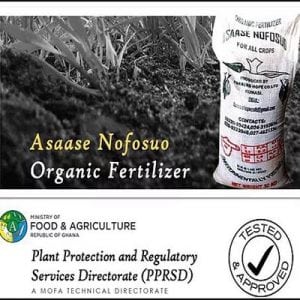
Agriculture
August 22, 2024
Implemented by
Farmers Hope
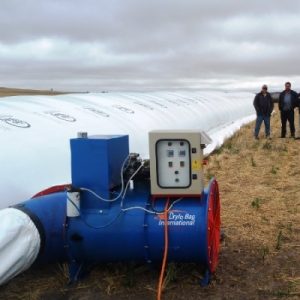
Agriculture
January 22, 2024
Implemented by
Drylobag International
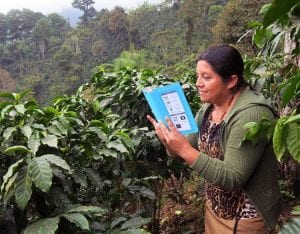
Agriculture
June 1, 2024
Implemented by
Rainforest Alliance
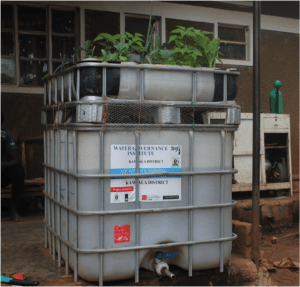
Agriculture
September 18, 2024
Implemented by
Water Governance Institute
Have thoughts on how we can improve?
Give Us Feedback
where can we buy this bag